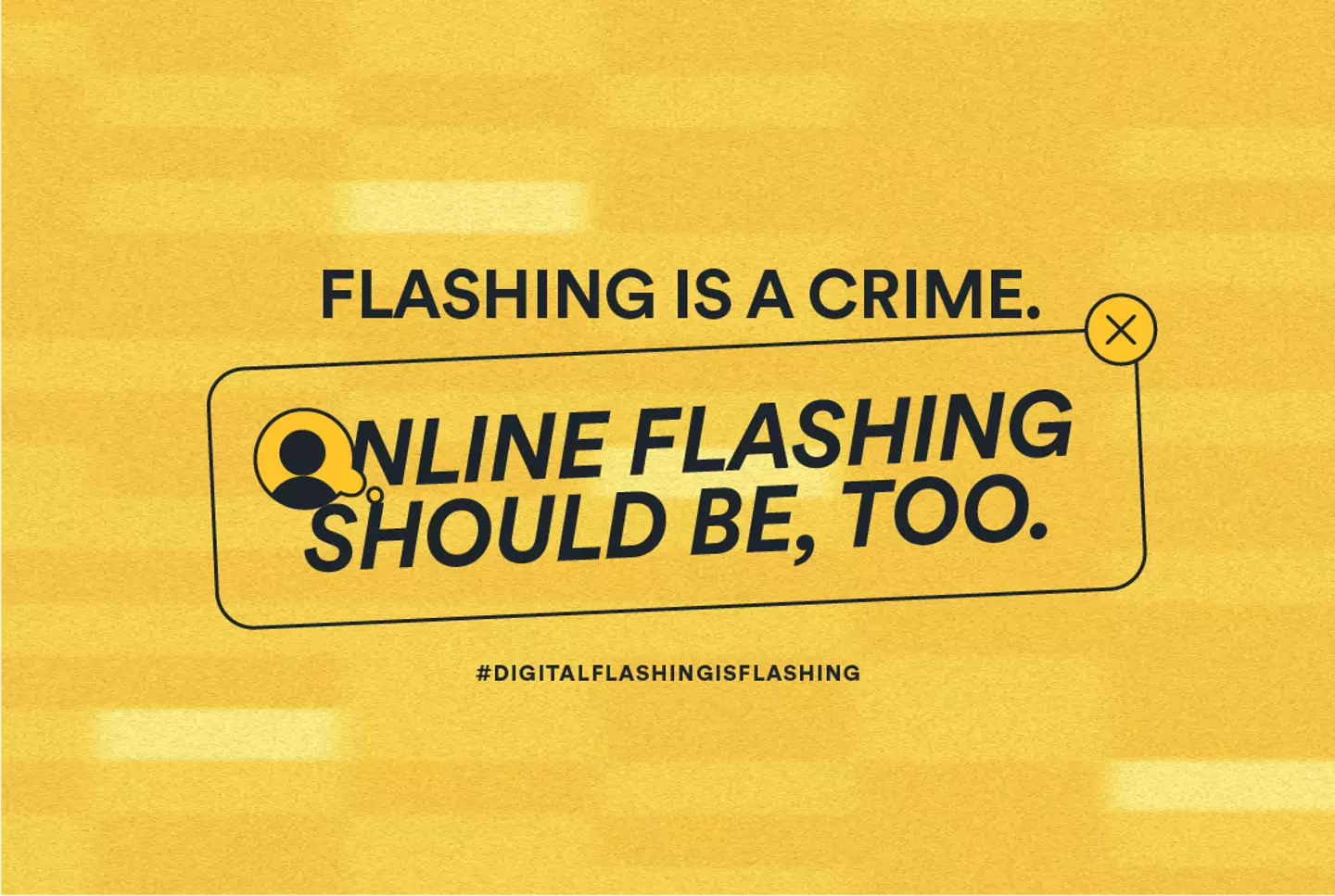.png)
In the last year, almost half of 18-24-year-old women have received an unwanted sexual image online - also known as 'cyberflashing'.
Renee, 21, who lives in London, had previously experienced cyberflashing from strangers on the internet, but when she received an unsolicited, explicit video from her brother's friend two years ago, she was left feeling 'violated' and 'ashamed'.
Speaking to Tyla, Renee - who has teamed up with Bumble for its #DigitalFlashingIsFlashing campaign - explains how the incident has affected her mental health.
Advert
"My brother's friend is a few years older than me, and was trying to message me loads. One day, he sent me a video on Instagram DM. I was in Bristol, in public, and then all of a sudden my whole screen was filled with the video," Renee tells Tyla.

"If I knew it was explicit content I wouldn’t have opened it. I sent the video to his family and still have screenshots of the chat."
While Renee says the man's parents instantly left the group chat, his sister sent Renee a message.
Advert
"She was really lovely. She was saying how shocked she was and embarrassed and how she was going to speak to him and make sure that it was completely dealt with.
"It made me feel embarrassed and disgusted, my initial reaction was anger and then I just felt uncomfortable. It used to really get to me knowing he could just do that and get away with it.
"I was feeling shame and embarrassment and thinking, 'why is it me that's feeling this?' He's probably just sat there, living his life as normal. I wanted him to feel some of the embarrassment I had felt."
Renee initially hesitated to tell other people about what had happened, especially considering the man was one of her brother's friends.
Advert
"I definitely internalised it a lot. I ended up feeling ashamed, embarrassed, and I didn't know how people would react or if they would understand. Maybe traumatic is a strong word, but it's something that actually left me feeling quite violated," she says.
"I didn't tell [my brother] until after I'd had dealt with it myself. It was a weird situation. I've had it before where it's been complete strangers on the internet but now I could be out getting a takeaway with my friends and he would be there. I just felt awful."
.png)
Seeing the man out and about in her local area changed the situation for Renee. "I hadn't even thought about bumping into him, but the town I grew up in is really small," she says.
Advert
"Then, he would just start springing up where I was - the pub, restaurants, little festivals that the town has. It was something I wouldn't think about and then once I saw him, the enjoyment of whatever I was doing would disappear.
"I am an anxious person and that definitely made me feel way more on edge. Knowing I could go out and see him in local places made me feel super anxious."
It's now been a couple of years since the incident and Renee is grateful that she can speak about her experience for the Bumble campaign, which aims to criminalise cyberflashing.
Renee says she didn't realise how empowering it would be and how much support she would receive from others.

As part of the campaign, and together with UN Women, Bumble is set to hold cross-party Parliamentary consultations with key policymakers and leading experts to move towards legislation and preventative solutions to end cyberflashing.
Advert
The app is calling on the government for a new law to criminalise sending unsolicited images of genitals. "It is a crime in the real world and should be in the digital world as well. This new law would bring England and Wales in line with Scotland where cyberflashing has been a criminal offence for over a decade," the campaign explains.
Whitney Wolfe Herd, Founder and CEO of Bumble, said: “At Bumble we’ve been taking steps to tackle cyberflashing for years. We built a Private Detector feature that captures and blurs nude images, and successfully campaigned to make unsolicited nude images illegal in Texas.
"But this issue is bigger than just one company, and we cannot do this alone. We need Governments to take action to criminalise cyberflashing and enforce what is already a real-world law in the online world.”
You can find more information on Bumble's campaign here. If you have been affected by cyberflashing, you can find help, support and advice at The Survivors Trust.
Featured Image Credit: SuppliedTopics: News, Real Life, Sex and Relationships, No Article Matching
